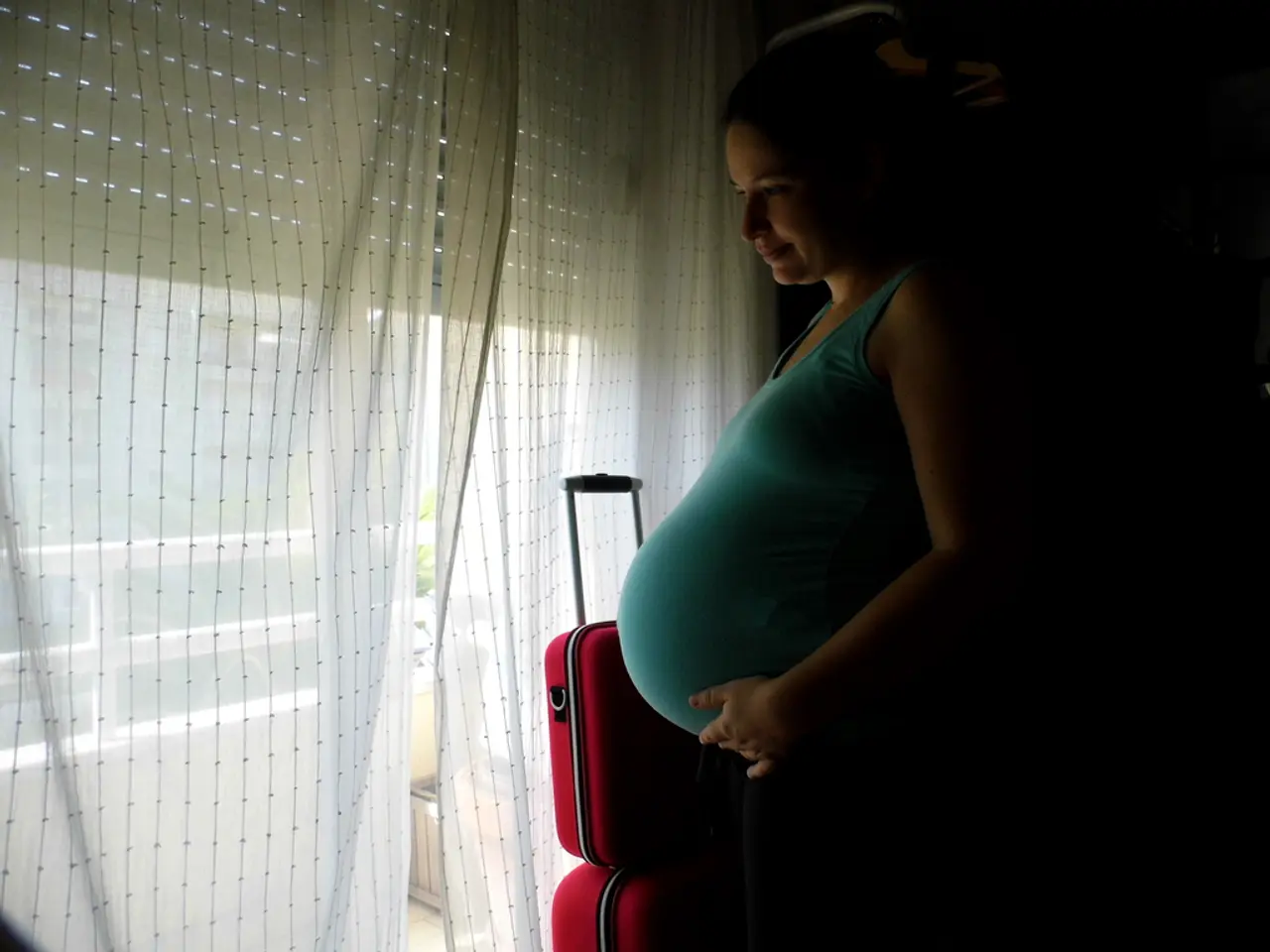Researchers in Japan execute procedures aimed at decreasing the number of fetuses in multiple pregnancies
In a groundbreaking development, researchers at the University of Osaka Hospital have conducted Japan's first clinical study on multifetal pregnancy reduction (also known as selective reduction). The study, which took place last year, involved 10 pregnant women aged between their 20s and 40s who were carrying triplets or more, or twins with serious maternal complications [1][2][3].
The objective of this procedure is to reduce the number of fetuses, thereby improving the health outcomes for the mother and the remaining fetuses, particularly when multiple babies result from fertility treatments using ovulation induction medications. It is crucial to note that the fetuses selected for reduction are chosen based on minimising harm to the mother and other fetuses, without conducting genetic or gender tests for selection, in accordance with ethical guidelines [1][3].
The hospital's clinical trial proceeded after a thorough review by an in-house ethics committee, and the surgery itself is not classified as abortion under Japan’s Maternal Health Law. Ethical principles emphasised include careful individual assessment of each case, avoiding selection based on genetics or gender, addressing the psychological burden and guilt that pregnant women may experience, and making the reduction a considered option only in cases of triplets or more, or twins with significant maternal health risks such as heart disease [1][3].
Professor Masayuki Endo, deputy director of the Center for Fetal Diagnosis and Treatment, expressed his team's aspirations to make multifetal reduction a viable and ethically sound option for affected families. He noted that discussions on this matter have stagnated despite growing clinical needs [1][3].
The results of the surgeries were presented to the Japan Society of Perinatal and Neonatal Medicine, demonstrating the procedure's high reliability. The survival rate of fetuses not subject to reduction stood at 89.5% a week after the procedures [1][3].
This latest finding represents a significant step forward in the field of obstetrics, balancing medical reliability with sensitive ethical frameworks, and seeking to protect maternal and fetal health while respecting the social and psychological complexities involved in multifetal pregnancy reduction.
- The study's objectives encompass the improvement of health and wellness for mothers and remaining fetuses, focusing on arts and mental health aspects by addressing the psychological burden and guilt that pregnant women may experience.
- In the realm of society, discussions surrounding multifetal pregnancy reduction have stagnated, despite the growing clinical needs in health-and-wellness sectors, particularly for therapies and treatments of medical-conditions like heart disease.
- As the field of science progresses, it is crucial to uphold ethical guidelines in the development of techniques like selective reduction, ensuring that they remain reliable, safe, and respectful towards medical-conditions, mental-health, and societal norms.




